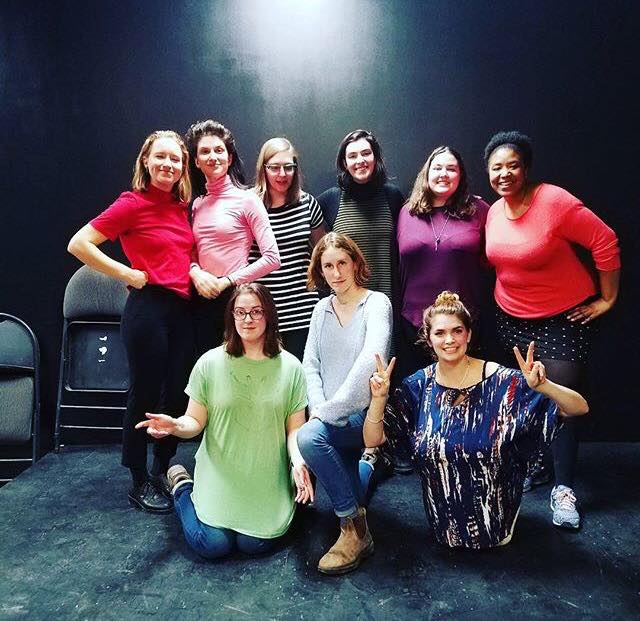Magic happens when women tell their stories and break down stereotypes
“I knew I wanted to create a show, but I didn’t feel I had the right to.” This is what my friend Kate Lindner told me as she explained the inception of Infemous, a monthly variety show she now produces and hosts at the Montreal Improv theatre.
Despite being active in Montreal’s comedy scene, Lindner, a Concordia creative writing student and emerging comedienne, was initially worried she didn’t have the experience needed to justify producing her own show. But, with the support and encouragement of other women in comedy, Lindner created Infemous, an hour-long show featuring improv, monologues and sketch comedy performed exclusively by women and non-binary performers.
When Lindner offered me the opportunity to perform as a guest monologist in the second Infemous show, I had plenty of questions—the first of which being: what, exactly, is a monologist?
As it turns out, a monologist is a storyteller, which on paper sounds like a pretty fitting match for me, considering I’m a creative writing student. Unlike my written work, though, the challenge and excitement of monology stems from the fact that it’s dynamic and live, with no opportunity for revision after the fact. The idea is to share, in front of a live audience, two five-minute monologues related to femininity in some way. The monologues are intended to be entertaining, funny, memorable, but most importantly, true.
It would be my first time on a stage since my high school theatre nerd days, and even then, I was used to reading lines other people had written. While my creative writing education focuses primarily on fictional worlds and characters, and my work with The Concordian requires airtight, fact-checked truth, my role in Infemous would be about being myself and telling my own stories. I was worried I would be met with blank, unresponsive stares; that I would somehow mess up at being me. I was scared that maybe I didn’t have any stories worth telling.
Obviously, being afraid to stand in front of a live audience isn’t a particularly unique anxiety, but it is a big part of why Lindner decided to create Infemous. We still live in a world where women and non-binary people are left wondering if there’s room for their stories and abilities. Infemous offers a space where our voices are both welcomed and celebrated. It’s not a place for shock-value offensiveness or competition between performers—it’s a place to break stereotypes and explore narratives that might still feel foreign on most stages. During the first two Infemous shows, performers cracked jokes about everything from used tampons to female masturbation, and the audience laughed along each time.
Despite my anxieties, the night was a blast. The entire cast met before the show to play improv games, decorate signs with glittery paint and let a fancy new app guide us through breathing and mindfulness exercises. The audience was receptive and gracious to my stories about public humiliation and baby-sitting gigs from hell, and every step of the way I felt comfortable and validated.
The other performers were wildly hilarious, but I wouldn’t have expected anything less from them. It was an amazing night, but not a night that could have existed without women creating these spaces, telling their stories and jokes, and inviting other women and non-binary folks to share theirs as well.
Ultimately, I couldn’t have asked for a better group to share my stories with, or a better cast of women to share the stage with.
If you’re interested in checking out Infemous, the next show will take place on March 24 at 8 p.m. at the Montreal Improv theatre.
Feature photo by Lauren Pinsler
